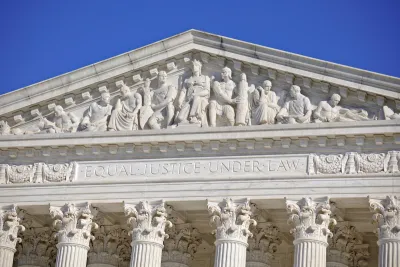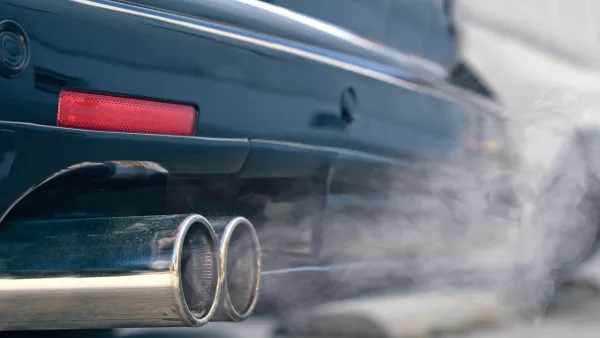A 1984 landmark Supreme Court ruling empowering federal agencies to interpret statutes when there is uncertainty is being challenged. The outcome will impact federal regulatory authority throughout government, particularly environmental protection.

Update:
“Chevron is overruled. Courts must exercise their independent judgment in deciding whether an agency has acted within its statutory authority,” Chief Justice John Roberts wrote for the majority.
A central part of any president’s strategy for reining in greenhouse gas emissions has a big problem in a post-Chevron Washington: The regulators draw their authority from a law that Congress hasn’t significantly updated in 34 years — well before most lawmakers were even thinking about the dangers of climate change.
A rather arcane case brought by Chevron USA against the National Resources Defense Council involving the Clean Air Act was decided by the U.S. Supreme Court in 1984, establishing the principle that “courts will give the [government] agency deference in ambiguous situations as long as its interpretation is reasonable,” according to Justia, a legal information website.
Chevron is likely the most frequently cited case in American administrative law and is the origin of the term “Chevron deference.”
That principle, long targeted by conservative groups, “lies at the heart of two cases the court heard this term: Loper Bright Enterprises v. Raimondo and Relentless v. Department of Commerce,” reports Andrew Welch for Barron's on June 27. “Both cases involve fishing boat operators who challenged the constitutionality of federal government regulations intended to protect Atlantic herring fisheries.”
During oral arguments in January, some conservative justices expressed skepticism about it, suggesting the court could overturn or curtail it.
Cataclysmic?
“Groups on both sides of the doctrine tend to talk about the case in cataclysmic terms because of the ways it could ripple through American law — changing the balance between those fighting government agencies, the agencies themselves and the courts overseeing the disputes,” reported Michael Macagnone for Roll Call on Jan. 26, 2024, the day before oral arguments were heard.
Macagnone wrote on May 1, 2023, after the Supreme Court agreed to review the case, that the outcome “could change the balance of power between executive agencies, Congress and the judiciary.”
“If the court decides to trim it back or fully overrule it, judges will be able to substitute their own interpretation of the law in more cases, and may be more likely to strike down existing agency rules,” reports Rachel Frazin, who covers energy and environment policy for The Hill, on June 25.
“[I]f the court gets rid of the doctrine, then we have a lot of questions about what kind of litigation will ensue, and I predict that a lot of particularly industry groups may bring challenges against environmental health and safety regulations that have been upheld under Chevron,” said Emily Hammond, [an expert in energy law, environmental law, and administrative law] at George Washington University.
The decision could come as early as Friday, June 28, or early next week.
A Planetizen news post last August, “Federal Fuel Economy Rules Take Different Path than Emission Standards,” referenced the Chevron deference principle, along with a 2022 landmark case involving federal regulations, W.Va. vs. EPA, which overturned the former President Obama's clean power plan rule.

Analysis: Cybertruck Fatality Rate Far Exceeds That of Ford Pinto
The Tesla Cybertruck was recalled seven times last year.

National Parks Layoffs Will Cause Communities to Lose Billions
Thousands of essential park workers were laid off this week, just before the busy spring break season.

Retro-silient?: America’s First “Eco-burb,” The Woodlands Turns 50
A master-planned community north of Houston offers lessons on green infrastructure and resilient design, but falls short of its founder’s lofty affordability and walkability goals.

Test News Post 1
This is a summary

Analysis: Cybertruck Fatality Rate Far Exceeds That of Ford Pinto
The Tesla Cybertruck was recalled seven times last year.

Test News Headline 46
Test for the image on the front page.
Urban Design for Planners 1: Software Tools
This six-course series explores essential urban design concepts using open source software and equips planners with the tools they need to participate fully in the urban design process.
Planning for Universal Design
Learn the tools for implementing Universal Design in planning regulations.
EMC Planning Group, Inc.
Planetizen
Planetizen
Mpact (formerly Rail~Volution)
Great Falls Development Authority, Inc.
HUDs Office of Policy Development and Research
NYU Wagner Graduate School of Public Service





























